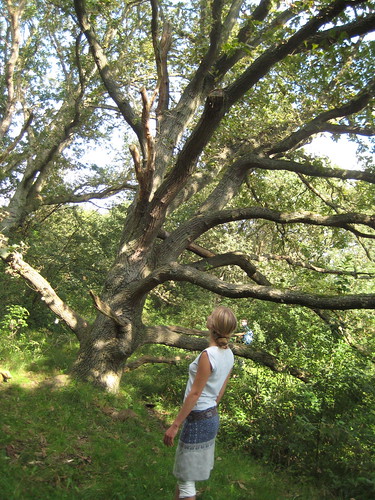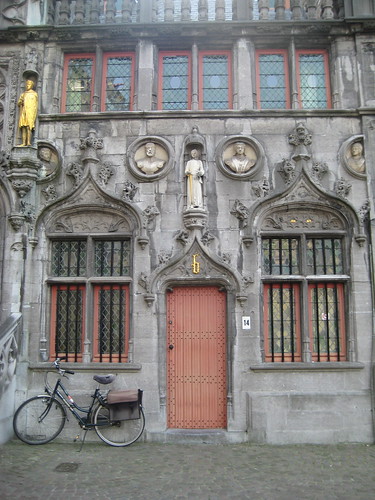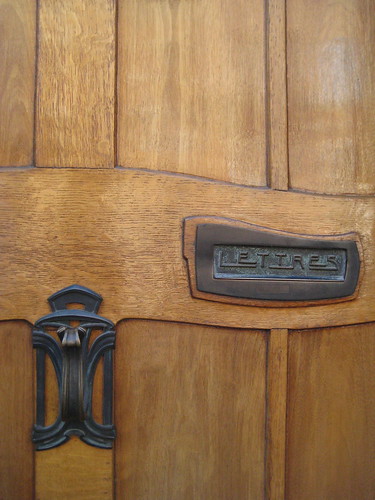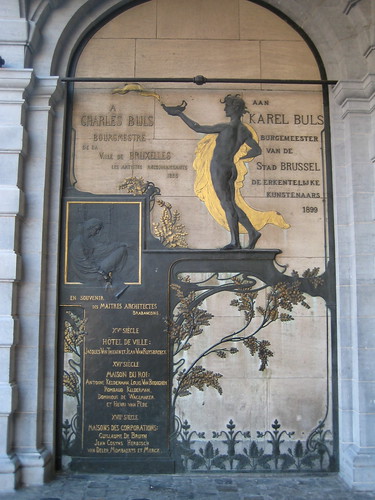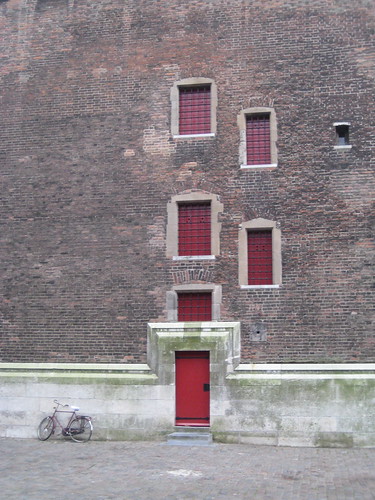
Flora goes to school an hour or so away by train, in Utrecht. There was only one day out of the several I spent with her on which she had to attend classes, and I asked if she wouldn't mind if I followed her, exploring the city while she studied English and Italian Renaissance literature. She was delighted by the idea. We took an early train, and she drew me a map.
Utrecht is a medieval town, also built around canals. The city is so old, however, that new street was built upon old street, new house built atop ruin, so often that the canals now lay at the bottom of long sets of stairs descending along stone walls, a full floor of a house at least below street level. Sometimes the basements of the homes and businesses have windows or doors or courtyards opening up onto the water.
There is a great Christian Viking stone in Utrecht, and the church was once blown in two by a great wind. A storm arose long ago, and one wing of the cathedral was destroyed by it completely and never rebuilt. As a result, the church proper and the tower, called the Dom Tower, short for Christendom, are separated by a courtyard. The flagstones under which people were buried in the church are still there, part of the pavement out of doors.
It is a university town, and all of the school buildings are public spaces. Flora encouraged me to explore them, and I found some lovely things, including a stained glass ceiling. There is also an Art Deco post office and more than one apothecary's garden.

